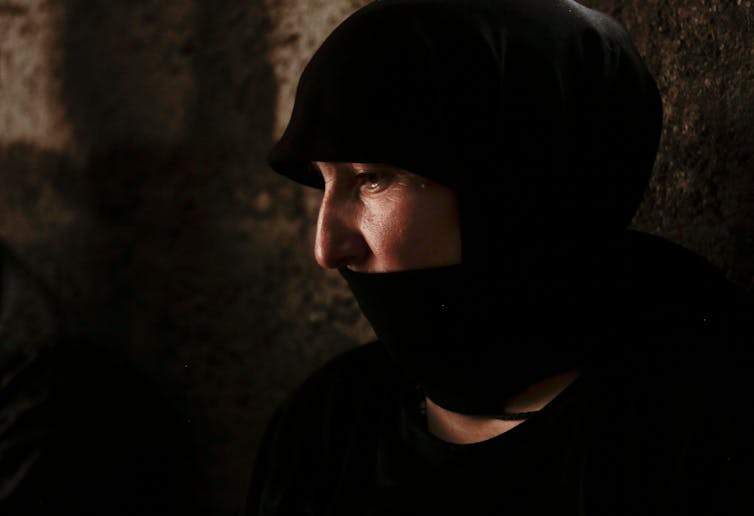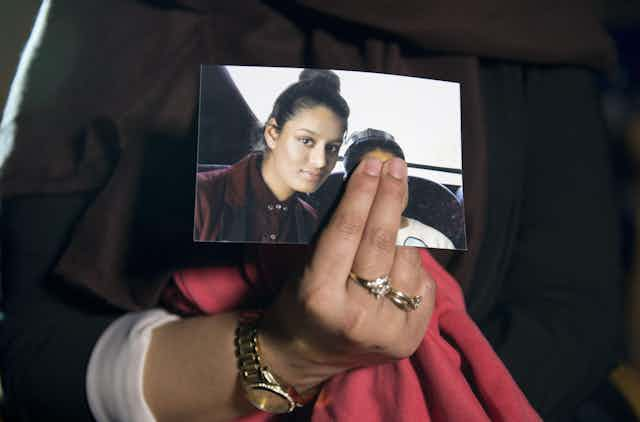Shamima Begum is not coming home. The Islamic State (IS) poster girl lost her latest appeal against the British government’s 2019 decision to strip her of her citizenship on grounds of national security.
The ruling meant a brief return to the British headlines for both Begum and the jihadist terrorist group. When the then 15-year-old and two friends ran away from London for IS in 2015, the group held land almost the size of Britain in Iraq and Syria.
Now, IS has no territory in the region. Begum is the only one of the young women left alive. And there is neither the public nor political will to bring Begum or others like her home. IS is yesterday’s news – at least in Europe.
Islamic State’s newsletter al-Naba tells a different story. Each week it reports on successes in Africa, the centre of its global activities. The Global Terrorism Index report, published annually by the Institute for Economics and Peace, a thinktank, noted that IS was the world’s most deadly terror group in 2022, and 43% of deaths from terrorism were in the Sahel. Both IS and rival jihadist factions are thought to be responsible.
War between IS and rivals al-Qaeda blazes across sub-Saharan Africa. In Mozambique, thousands of civilians are on the move, forced from their homes by an IS affiliate. As in Iraq and Syria, women are often targets. In one brutal incident in Mozambique, fighters reportedly trapped Christian women in a house and set it ablaze.
Trafficking, violence and IS women
Jihadist targeting of women, such as the rape and enslavement of Yazidi women in Iraq and Syria, or the abductions of women in Nigeria, are central to their violence. Recognising this, the UN security council in 2019 passed a resolution emphasising the need to see gender-based violence “as a tactic of war and terrorism”. In Nigeria, IS west Africa fighters have explicitly targeted women working with humanitarian organisations, even executing them on video.
Trafficking has been an important IS tactic. At its height, IS propaganda techniques resembled those of organised child sexual exploitation. Recruiters, like predators, sought out the vulnerable to gain their trust, encouraging them to keep this secret.

The group needed women. Without them, there was no one to birth the next generation, no one for the “heroic” jihadists of IS propaganda videos to fight to protect. Women were at the heart of the IS governance project, its recruitment and trafficking, and of its violence.
Lawyers for Shamima Begum have argued she was a minor who was trafficked to Syria, and was therefore a victim of IS, lacking agency. A UN special representative stated in a 2018 report (the year before Begum’s citizenship was stripped) that armed groups’ “recruitment and use of children nearly always constitutes trafficking”.
By removing Begum’s citizenship, the UK has essentially blocked any attempt to understand if and how that trafficking took place.
Repatriation and justice
The UK’s stance on repatriating IS women is one of “strategic distance”. In the words of former Met police counterterrorism chief Neil Basu, “if you have chosen to go … you shouldn’t be allowed to come back”. This approach sets the UK apart from other western countries.
In 2023, according to US state department data, 14 countries repatriated more than 3,500 of their nationals from north-east Syria. In France and Germany, some IS women have gone through the domestic courts.
While IS women were mainly not permitted to fight, not all violence took place on the battlefield. France has prosecuted female jihadis for association with “terrorist wrongdoers”.
Germany has prosecuted some IS women under war crimes and genocide legislation. In one case, a woman was sentenced for her role in the enslavement of a Yazidi woman. In another, for the death of a Yazidi child, left in the sun to die. Repatriation and trials go some way not just to punishing wrongdoing, but providing the Yazidi people with justice.
Returned to countries of origin, IS members can be managed. A new report published by the International Centre for Counter-Terrorism found that in Belgium, Germany, France and the Netherlands, most imprisoned women do not appear to pose a threat.
The 2023 Shawcross report into the British counter-radicalisation strategy Prevent concluded that Islamism terrorism is the largest terrorist threat facing the UK. British Islamism is not isolated, it is influenced by wider trends of transnational jihad.
In leaving Shamima Begum stateless in Syria, the British government sends a message, not just to a Britain that does not want her, but to the Middle East and Africa: Islamic State is no longer our problem.
The truth is, IS violence is not over, even if the theatre of conflict has shifted. Begum has become a symbol of British unwillingness to take this seriously. Her lawyers say they will fight on. Perhaps next time Britain will recognise that IS violence remains a global threat.

